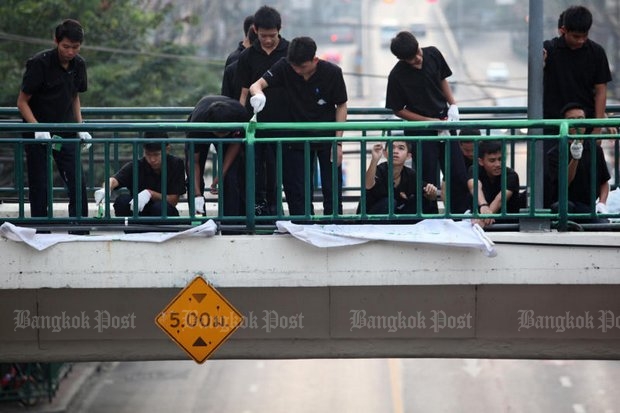
The Education Ministry is launching the "20-year Strategic Education Plan" as it works towards its vision to revamp the education system and bring educational standards on a par with those of developed countries.
The plan will be in line with the government's 20-year national strategy, which consists of six areas -- security, competitive enhancements, human resource development, social equality, green growth, and rebalancing public sector development, according to permanent secretary for education Chaipreuk Sereerak.
Each education policy is being geared towards the goals of investing in human capital; ensuring justice and reducing social disparities; strengthening the economy and enhancing competitiveness on a sustainable basis; and promoting green growth for sustainable development.
The policies must also address stability for the country's development toward prosperity and sustainability, enhance the efficiency of management in the public sector and promote good governance.
"It is crucial for Thailand to have clear directions for long-term educational development at this juncture when the country is entering the so-called Thailand 4.0," Mr Chaipreuk said, referring to development plans for digital infrastructure.
Mr Chaipruek said the strategy is helping the Education Ministry embark on a development programme that fully serves the needs of the country. The ministry must promote the dual education system, which combines apprenticeships in a company and vocational education.
The permanent secretary said both short and long-term goals have been set for reforming the education system and the ministry must have everything ready, such as skills development plans and funding.
Mr Chaipruek said short-term goals include lifting the country's performance on the IMD's annual World Talent Report competitiveness rankings, raising the average O-Net scores of students in every subject to above 50%, increasing the education of working-age adults and providing high-speed internet access to 90% of schools nationwide.
The long-term targets are reducing disparities in academic strengths between students in well-known schools and those in rural areas; guaranteeing equity in educational resource allocation; raising research and development spending in universities;and increasing the ratio of vocational to general students from the current proportion of 38:62 to 60:40 over the next 20 years, he added.
"Any policy of future governments must follow this framework," he said. Education Minister Teerakiat Jareonsettasin announced the ministry will focus on fixing inequality in the education system in line with guidelines initiated by the late King Bhumibol Adulyadej. He also vowed to solve the chronic shortage of teachers and teaching mediums in schools nationwide within five years.
Mr Teerakiat has handed over the policies and guidelines to regional offices of the Office of the Basic Education Commission (Obec) which must find solutions for schools that do not perform well.
Schools in "critical" condition are those which are struggling with a shortage of teachers and teaching resources while their buildings and facilities urgently need extensive renovations or repair.
"Obec will have to find out the root cause of the problems in rural schools and how many schools it must help each year," he said.
Mr Teerakiat is carrying on the policies of his predecessor, such as cutting class time in state schools by two hours a day, promoting vocational education, and improving people's English competencies.
The minister also vowed to eliminate corruption in the ministry, saying that legal action will be taken against corrupt officials. The lack of policy continuity has hurt the education system. Thailand has had 21 education ministers in the past 18 years, which means that on average, each of them served only nine months.
Sompong Jitradup, an education specialist at the Quality Learning Foundation, said each minister spends around three months learning the ropes, leaving them with just six months to get down to advocating and executing policies. "As soon as a new education minister is appointed, they tend to look at their own initiatives -- not [the policies] introduced by their predecessors," he said.
However, with Mr Teerakiat, he believed things will be different. The minister is highly experienced in the field of education and he has worked as a deputy minister. He also previously worked closely with former Education Minister Dapong Ratanasuwan.